
Willow Dawn Becker
 Top Computer Forensics Professors
Top Computer Forensics ProfessorsThe rise in technological advancements is simultaneous with the demand for tech-savvy professionals in the field. For those with a dual interest in law and digital, a career in computer forensics could be the perfect fit. From analyzing information technology programs to retrieving pertinent data from mobile or laptop devices, computer forensics professionals are the key to extracting data from devices to use in the courts for further evidence in investigations. Not sure what you’d like to specialize in with a computer forensics career? Well we’ve outlined a list of the top computer forensic professors nationwide who have expertise from network security information to cybercrime. Check out the below list of professors to see what interests you in the digital field of computer forensics.
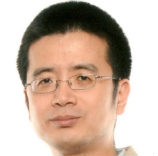
Dr. Xinwen Fu is an associate professor at the University of Massachusetts Lowell’s Department of Computer Science. In fact, he acts as associate director of the school’s Center for Internet Security And Forensics Entrepreneurs (I-SAFE), which does research focusing on cloud authentication; security and privacy issues for mobile devices, databases and networks; and network forensics. He received his doctoral degree in computer engineering from Texas A&M University and has research interests that pertain to digital forensics as well as network security and privacy. He’s had conference papers published for the likes of the IEEE Symposium on Security and Privacy and was among a number of speakers at a Black Hat symposium held in 2009 near Washington D.C. He is also a member of the International High Technology Crime Investigation Association. Among his many recognitions are a 2013 Best Paper Award at the IEEE ICC Communication and Information Systems Security Symposium.
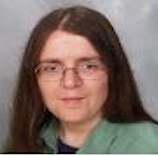
Dr. Melissa Danforth has been an instructor at California State University Bakersfield’s Department of Computer Science and Electrical Engineering for more than six years. She graduated with a doctoral degree in 2006 from the University of California, Davis, doing a dissertation entitled “Models for Threat Assessment in Networks.” She has received several grants and honors and is a member of numerous groups such as the Association for Computing Machinery’s Special Interest Group on Security, Audit, and Control. One of her current projects is doing research through the school’s Cybersecurity Networking and Research Lab, which has seven workstations for students to investigate network security issues within isolated network environments. Her research includes interest in helping administrators evaluate threat assessments to their networks by use of attack graphs as related to forensics, patch management, network design and response. She has also supervised student research projects related to digital forensics and other topics.
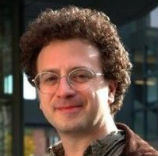
As an associate professor at the Naval Postgraduate School in Monterey, Calif., for more than seven years, Dr. Simson Garfinkel brings his expertise to students in the fields of cyber security and digital forensics. In fact, he even founded the school’s Digital Evaluation and Exploitation Laboratory (DEEP), which aims to expand the algorithms and tools used in computer forensics and that receives funding from sources like the U.S. Department of Defense. Dr. Garfinkel received his doctoral degree in computer science from the Massachusetts Institute of Technology, and has research interests that pertain to the fields of digital forensics, privacy, and usable security. He’s done an extensive number of presentations and tutorials over the years, including two called Digital Signatures: Current Barriers, and Automated Digital Forensics. He’s refereed a wide number of conference papers and journal articles, and with a master’s of arts degree in journalism from Columbia University in New York City, served as a science and technology writer for The Christian Science Monitor, technology columnist for HotWired, and contributing writer for WIRED Magazine in the past.
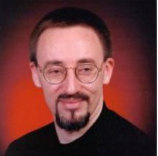
The University of Alabama at Birmingham may be fortunate to have Gary Warner on staff for the many roles he holds at the school. He is both an undergraduate and gradate instructor, teaching classes such as Computer Security, Introduction to Computer Forensics, and Cybercrime and Forensics. He is also the school’s director of research in computer forensics and oversees its Computer Forensic Research Laboratory, a 35-station lab aimed at researching new methods and techniques for finding digital evidence tying in to malware, phishing and spam. He also helped create the UAB PhishIntel system and the UAB Spam Data Mine, both which which aid in criminal justice investigation or help in the early identification of potential threats. Rounding out his expertise is work as a security consultant, as former director of IT for a company called Energen and publication in academic journals such as the Journal of Digital Forensics, Security and Law as well as the International Journal of Digital Crime and Forensics. As if that isn’t a full plate, he also runs a blog called CyberCrime & Doing Time that he updates with topical, relevant posts.
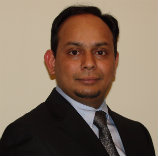
Dr. Avinash Srinivasan joined George Mason University in early 2012 as an assistant professor in computer and network security. Before that, he worked for Bloomsburg Univesrity of Pennsylvania in computer forensics as an assistant professor for more than three years. He received his doctorate in computer science from Florida Atlantic University and spent three years soon thereafter as a research in tern for Motorola. His expertise is extensive and continues to grow. He's published more than 30 conference papers, many for the Institute of Electrical and Electronics Engineers (IEEE). He's been a reviewer of multiple journal articles and books, acted as chair for a diverse number of organizations, and provided network forensics training to law enforcement officers in Pennsylvania on multiple occasions. At George Mason University, he teaches classes in information security, and has research interests in digital forensics that include file systems forensics, mobile and embedded device forensics, and anti-forensics techniques, like information hiding.
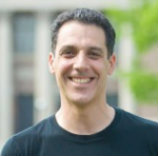
Dr. Hany Farid is an award-winning professor who brings diverse expertise to his job at Dartmouth College in Hanover, N.H. There, he is a professor of computer science and does research into digital forensics among other areas. Some of this research has related to identifying the computational and math techniques to help uncover potential tampering in audio, document, photo and video files. He’s been a professor at Dartmouth College for more than 14 years, but also was a visiting professor at both Stanford University and UC Berkeley in the past. He also previously directed Dartmouth’s Neukom Institute, a laboratory aimed at transforming the school into a leader in computational science. Dr. Farid also did a TedXDartmouth presentation in 2011 entitled “What’s a Picture Worth?” and has been published an extensive number of times in journals, technical reports and the press. His presentations and talks cover various aspects of his work and include titles such as Photo Forensics; Digital Image Forensics; Digital Tampering and Forensics.
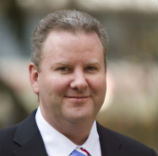
Dr. Darren Hayes’ work is extensive and his program chair and lecturer positions with the Computer Information Systems (CIS) department at Pace University in New York City are only part of that. At the school, he manages courses for approximately 2,000 students each year, but also heads up the school’s computer forensics laboratory, working with computer science and information systems graduates involved in research. As well, he works as a professional training consultant in computer forensics with New York City’s Department of Education, and has, in fact, developed computer forensics curriculum through Pace University for several high schools in the city. He is a member of several organizations, including the High Technology Crime Investigation Association.
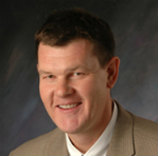
Professor Rick Mislan recently joined the staff of Rochester Institute of Technology in 2013 in its newly-created Department of Security, part of its College of Computing Information and Science. His fields of expertise include computer security and information and wireless technology. Research interests include small scale digital forensics, unique sources of digital evidence, and the use of artificial intelligence in cyber forensics. At RIT, he will work on developing new undergraduate and gradate coursework in mobile security and vulnerability. A 2011 article published about him, when he was a professor at Purdue University in Indiana, indicates that he had more than 1,000 different types of cell phones and PDAs and that he was an expert in extracting the contacts, call history, and messaging from these types of small devices. He is also a review editor for the National Institute of Standards and Technology, helping develop guidelines for cell phone and PDA forensics. As well, he was former editor for the Small Scale Digital Device Forensics Journal. He’s written a broad number of papers, done many presentations, and received many awards and grants.
The following criteria were used in compiling this list of Top Computer Forensic Professors. Not all criteria applied to every professor, but many of the listed professors have:

Willow Dawn Becker
Willow is a blogger, parent, former educator and regular contributor to www.forensicscolleges.com. When she's not writing about forensic science, you'll find her blogging about education online, or enjoying the beauty of Oregon.